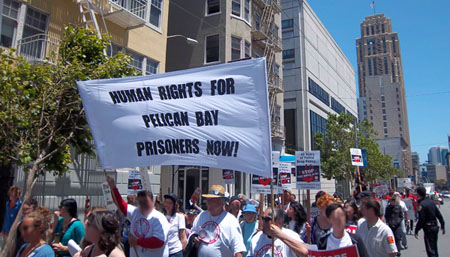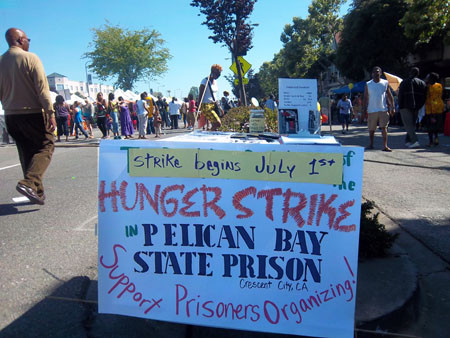
Assassination Nation: The World's Foremost Terrorist State is America
America is delusional. One need look no further than the Disney Corporation’s attempt to trademark “SEAL Team 6,” in order to market the image of paid killers as toys for children. How is this acceptable on any level? It’s not, it’s insane. In fact, a reasonable psychological diagnosis of the American state would conclude that it is severely schizophrenic.
Americans are indoctrinated since childhood to believe that America is a bastion of freedom, equality, and law; a bulwark against the lawlessness, murder, mayhem and terrorism that is rampant in the world today. Nevertheless, the reality is that America is the number one source of lawlessness and terrorism in the world today and has been for quite some time. Moreover, when America isn’t committing acts of terrorism, it is abetting those that do, such as the European settler state in Palestine known as Israel.
America has many fine-sounding laws against assassination, hostage-taking, and torture (in a word “terrorism”) but follows none of them. See the Foreign Sovereign Immunities Act of 1976, 28 USC §1602 et seq.; Civil Liability for Acts of State Sponsored Terrorism Act of 1996, 28 USC §1605 (i.e., the Flatow Amendment); Antiterrorism Act of 1990, 18 USC §2331, et seq.; and Torture Victims Protection Act of 1991, 28 USC §1350 (i.e., the Alien Tort Statute). Further, America is a signatory to the Geneva Conventions, and the International Convention Against Taking Hostages, codified at 18 USC §1203.
All the foregoing laws and conventions expressly forbid the majority of acts taken by the American military in the world, but America ignores them all when it comes to its actions and only applies them to other countries when they dare try to emulate America’s propensity for murder and mayhem. Long ago America’s rulers chose to follow the old Spanish Colonial aphorism that “the law is to be obeyed but not followed.”
For example, in Elahi v.
Islamic Republic of Iran, 124 F. Supp. 2d 97, 107 (D.D.C. 2000),
the court found Iran’s murder of an American citizen fit the definition
of an extra-judicial killing, as follows:
First, …the assassination was a deliberate act. Second, Cyrus Elahi was not afforded the judicial process contemplated by the statute. Third, as this Court stated over twenty years ago, assassination is “clearly contrary to the precepts of humanity as recognized in both national and international law.”[citation omitted.]
The American government’s murder of Osama bin Laden on International Workers’ Day, May 1, 2011, is no different than Iran’s alleged murder of Cyrus Elahi and meets all three of the criteria set by the Elahi court. First, the assassination was a deliberate act. Second, he was not arrested and brought to trial, i.e., afforded judicial process. Third, assassination is illegal in accordance with national and international law. Bin Laden was summarily executed because, as a known CIA asset, he would have exposed secrets the American government did not want exposed.
The American government admitted bin Laden was unarmed and surrounded by his children, who had to be cleared out of the way, and at least one of his wives, who was shot in the leg, so as not to interfere in the U.S. Navy SEALs’ hit. And hit it was, as bin Laden was shot once in the chest and once in the head in the classic assassination style known as the double-tap. No doubt there were powder burns surrounding his head wound, where the coup de grace was administered by these cold-blooded killers as he lay on the floor of his home, but we will never know as his body was promptly disposed of as is common in many professional hits.
Earlier the same day, it was reported that Libyan leader Muammar Qadhafi’s youngest son and three grandchildren were murdered by NATO bombs dropped on their home. Whether it was done by American planes or not is of little matter, as we all know if the American government didn’t support this bombing it wouldn’t have happened. This was nothing less than an assassination attempt, that included the intentional bombing of civilians in their home, which was done in direct violation of the UN mandate to protect civilians in Libya via a no-fly zone and the laws and conventions cited above.
It should come as no surprise that the assassination target was Qadhafi, who was said to have been at the home and narrowly escaped along with his wife, as the American government has been trying to murder him for years. President Reagan had Qadhafi’s home bombed on April 14, 1986, successfully murdering women and children but failing in his attempt to murder Qadhafi. President Obama has proclaimed his authority to assassinate anyone overseas, including American citizens, without a trial, so murdering Qadhafi would be no problem for him. Wives, daughters and sons are all just collateral damage.
America has never hesitated to murder civilians, men, women and children, in their homes. In WWII, America fire-bombed civilian targets in Germany and Japan’s cities and used nuclear weapons on Japanese civilians at Hiroshima and Nagasaki, as the Japanese government tried to surrender. Post-WWII, the American government has targeted the people of Korea, the Congo, Vietnam, Laos, Cambodia, Lebanon, Grenada, Panama, Haiti, Yugoslavia, Somalia, Iraq, Afghanistan, Pakistan, Yemen and, now, Libya. My apologies if I left anyone out.
This campaign of control through terror is by no means limited to the rest of the world. Here in the good ol’ USA, on May 13, 1985, the infamous “Mothers’ Day Massacre” occurred, perpetrated by the police, who murdered 11 MOVE organization members, including children, in their home and incinerated an entire neighborhood in Philadelphia, Pennsylvania, with the full cooperation of the American government, who supplied the explosives used in the massacre.
Not to be outdone, the FBI murdered 76 people, including children, in Waco, Texas, by blowing up their home and burning them alive on April 19, 1993. The FBI has proven time and again that it is willing to murder whoever, wherever, whenever, from Fred Hampton and Mark Clark in Chicago, Illinois, on December 4, 1969, to Randall Weaver’s wife and son at Ruby Ridge, Idaho, in August 1992. “No crime too foul” ought to be the FBI motto.
Speaking of mottos, the infamous mass-murderer and war criminal Harry S. Truman had a motto: “the buck stops here.” No doubt, the buck should stop with the American presidents, but it also reaches back into the cesspools known as corporate boardrooms. Consequently, it is time to end this criminal reign of terror. Every single one of these criminals in high office, national or corporate, should be tried and hung as the murderers they are. To continue to allow them to run free, let alone run the country, makes us all complicit in their assassination nation. It is high time we, as Americans, put an end to our complicity and our complacency once and for all!





 Alabama
Alabama
 Alaska
Alaska
 Arizona
Arizona
 Arkansas
Arkansas
 Army Post
Army Post
 California
California
 Colorado
Colorado
 Connecticut
Connecticut
 Delaware
Delaware
 District of Columbia
District of Columbia
 Federal
Federal
 Florida
Florida
 Georgia
Georgia
 Guam
Guam
 Hawaii
Hawaii
 Idaho
Idaho
 Illinois
Illinois
 Indiana
Indiana
 Iowa
Iowa
 Kansas
Kansas
 Kentucky
Kentucky
 Louisiana
Louisiana
 Maine
Maine
 Maryland
Maryland
 Massachusetts
Massachusetts
 Michigan
Michigan
 Minnesota
Minnesota
 Mississippi
Mississippi
 Missouri
Missouri
 Montana
Montana
 Nebraska
Nebraska
 Nevada
Nevada
 New Hampshire
New Hampshire
 New Jersey
New Jersey
 New Mexico
New Mexico
 New York
New York
 North Carolina
North Carolina
 North Dakota
North Dakota
 Ohio
Ohio
 Oklahoma
Oklahoma
 Oregon
Oregon
 Pennsylvania
Pennsylvania
 Puerto Rico
Puerto Rico
 Rhode Island
Rhode Island
 South Carolina
South Carolina
 South Dakota
South Dakota
 Tennessee
Tennessee
 Texas
Texas
 Utah
Utah
 Vermont
Vermont
 Virginia
Virginia
 Washington
Washington
 West Virginia
West Virginia
 Wisconsin
Wisconsin
 Wyoming
Wyoming


